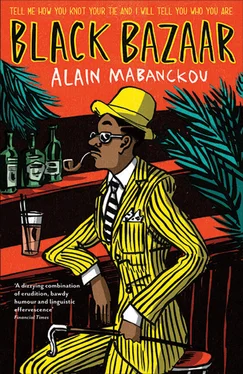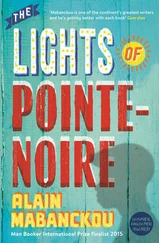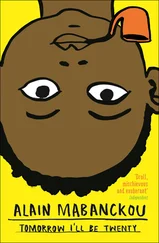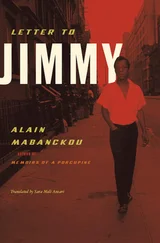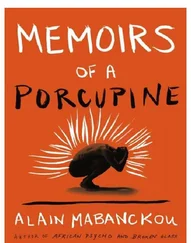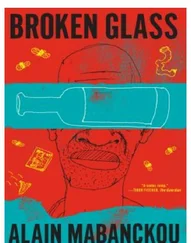It was at the time when we had to help the Angolans who were fighting against their rebel Jonas Savimbi and his men hidden in the maquis. So our government sent our young men to Luanda in their masses. We saw this as a punishment since the children of prominent citizens and other powerful figures in the regime didn’t have to go, not them. And Jonas Savimbi’s rebels hadn’t done anything to me to make me hunt them in the bush where they survived by hunting, gathering and fishing. Better still, I admired Jonas Savimbi’s big beard, his big nose and his green mamba eyes. I was happy when he routed the Angolan armed forces, and I crossed my fingers for him to win the war. Why go and fight against someone you like?
If us plebs were in a hurry to go to Angola it was in the hope of clearing off to Europe from our neighbouring country, which was a den of traffickers working hand in glove with the airlines. All you had to do was raise the tidy sum of three hundred thousand CFA francs, and you could fly off to Europe. I managed to get the hell out for good from Luanda.
I first arrived in Portugal before washing up in Belgium, and then in France with the ID of a long dead compatriot whose brothers had sold his residency card to Angolan traffickers. I go by the surname and first name of this disappeared person, so you’ll understand if I haven’t revealed my real name up until this point, still less the name of the street where my little studio in the 18th arrondissement is located. Obviously, the day I kick the bucket my little brother who lives in the home country will rush to sell my papers to the Angolans who will, in turn, sell them on to some idiot keen to make the journey to Europe.
But look, I’m in good shape and good health, and my wake isn’t set for tomorrow …
* * *
I don’t enjoy recalling those times of sacrifice, the work I did well in spite of myself before going to Angola. I would get up in the morning and wait for a truck in front of a bus shelter opposite Studio-Photo Vicky, on Independence Avenue. I would climb up onto the truck together with some other guys. The truck would purr its way along the Avenue, stopping every two hundred metres to pick up more packers. By the time we reached the town centre, day would be slowly breaking. We could hear the waves roaring. The sea was just metres away. The fish sellers in the Grand Market would be parking their old bangers at the entrance to the port and waiting, anxiously, for the return of the Beninese who had the monopoly on fishing the Côte Sauvage. The natives thought it was a humiliating job. That was the sea for you. Fights breaking out between fish sellers, arguments that ended in fisticuffs in the middle of the ocean …
This was where I worked, having failed my baccalauréat in Letters and Philosophy and my father having concluded that school wasn’t for me, that in any case it was a factory for turning out the unemployed along with people who wanted to become President of the Republic when in our country if you wanted to become President all you had to learn was how to execute a coup d’état and put your tribe in charge.
The truck would tip us out on the roadside like sardines, and we would walk up to a barrier where men in uniform would check our identity, confiscate our bags, and only then let us through in single file. And so the hard day’s work began, with the unloading of containers watched over by foremen. We were endlessly being accused of stealing objects from abroad in order to sell them on in Trois-Cents. At the slightest theft, the guilty person would be marched to the main customs office where he was stripped before being whipped with barbed wire and then a final settlement would be drawn up making him a debtor for life. With so many objects from all over the world the temptation to steal was there, no doubt about it. But it was the customs officers who indulged in this trafficking, we were just scapegoats. We the subordinates, we the less-than-nothings could only covet those marvels from a distance …
At one o’clock in the afternoon we were finally allowed to stop for a bite to eat. But even during our break, the foremen stuck to us like leeches. On each table they put a monster of a guard with a weightlifter’s physique, who chewed big chunks of cassava, had a swivelling eye and was listening out for the slightest whisper. We didn’t leave the port until evening, after interminable searches during which each worker was made to wear his birthday suit and put his hands in the air in a hut we nicknamed the “Screening House”. When we stepped outside, we felt as if we’d passed a tax inspection with flying colours.
At night, you had to sleep to be in good shape again for the next day …
* * *
My father would often impress on me that nothing was easy in a man’s life. Earning my living at the port had the advantage of toughening me up, and of making me think before spending. And he cited the example of my uncle Jean-Pierre Matété who had spent years humping goods at the Pointe-Noire railway station. That was how he had succeeded in life. He had built a permanent house, owned a water pump, and had electricity. And to complete his happiness, he had gone to find the woman of his life back in the village because, as he reminded us, “women from the town marry the wallet”.
My father had ideas about success that I no longer shared as the years went by. For him, the ideal was to have a job, any job. You had to put money aside for a few years, and then build a permanent house before returning to your birth village to marry a submissive virgin and a good housewife. The money you had saved would be used for the dowry, of course. And indeed this was how he had married my mother. He had told me this story to buck me up, to give me courage for my job at the port …
I can see this man, my father, now. Stocky, kindly looking, he had been lucky enough to reach the second year of elementary school, which meant he could express himself in French at a level envied by many of his friends. His work as a houseboy for the Europeans in the town centre was a sort of revenge, an opportunity to prove to the old people in the neighbourhood that he had succeeded in life. What’s more, he used to label all those old folks as “Australopithecus” because in his view they had closed minds, with no culture or vision about the big problems in our world. He had often thought that serving, obeying, being in the company of, and listening behind the doors of the Whites had raised him to the pinnacle of western civilisation whereby he had an opinion on everything and nothing. As long as the Whites had said something, then it had to be true, and it was impossible to present him with evidence to the contrary, particularly if that evidence came from a negro.
He would lose his temper:
“The White man is not stupid! Believe me, I am in their company every working day.”
And so, unassailable, he would launch into his explanations:
“There are Whites of every colour! Some have strange marks on their faces, some have very white hair even though they are still young, some have skin as white as palm wine, some have a skin that makes you wonder if they even deserve to be Whites, some even turn blue instead of going red when they are angry or embarrassed! The Whites, they come in every colour, take it from me! I’d even go so far as to say that Whites aren’t white the way people think they are!”
He told whoever wanted to hear it that he could have married a White woman, a “real” one who would have taken him to live in France, in Bordeaux. Why Bordeaux and not another French town? Because of the wine. To this day he believes that the town owes its name to the wine and that all the wines on earth, as long as they’re red, are automatically bordeaux wines that come from Bordeaux. He still doesn’t know that there are white bordeaux wines. And another thing, when he went inside one of the refreshment stalls in Trois-Cents and wanted to have a drink, a “long” or a “short” red from the Congolese Wine Society, he would call out to the bar owner: “A glass of bordeaux!”
Читать дальше
